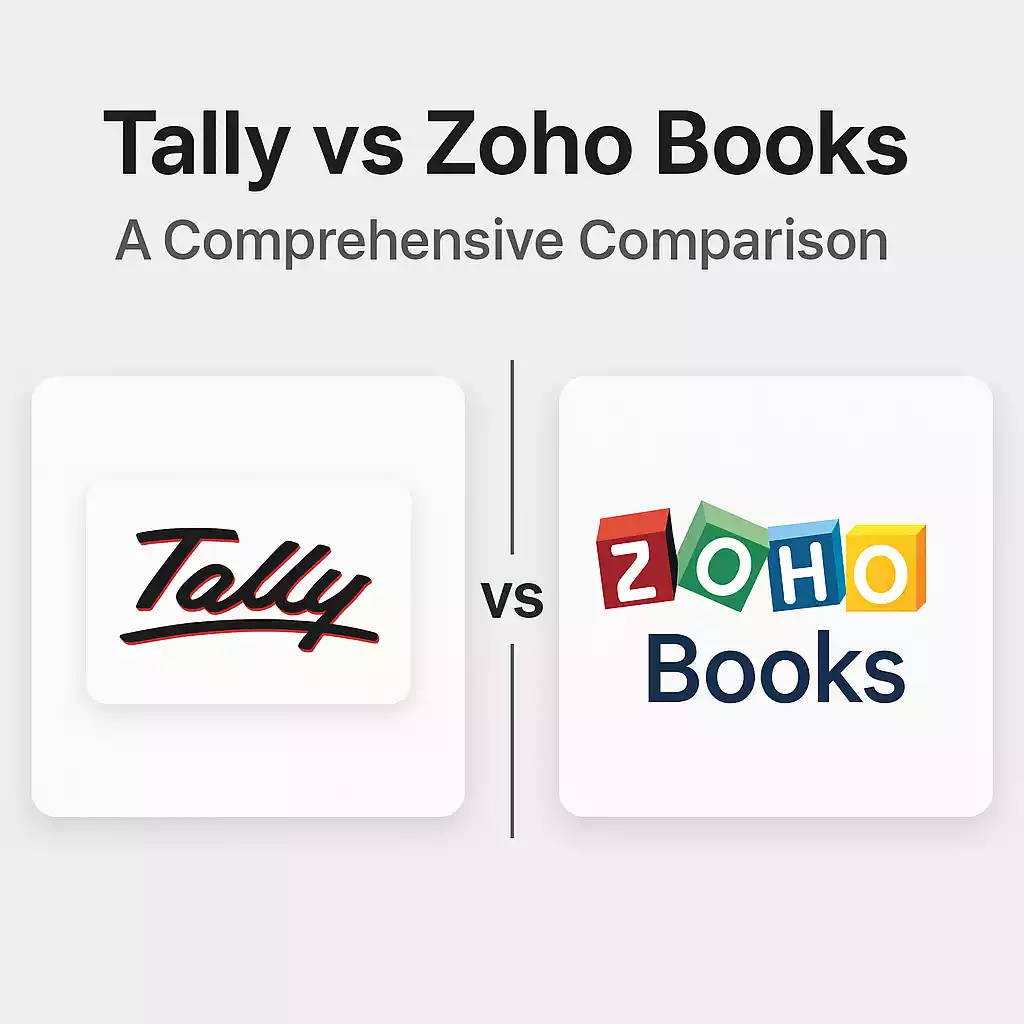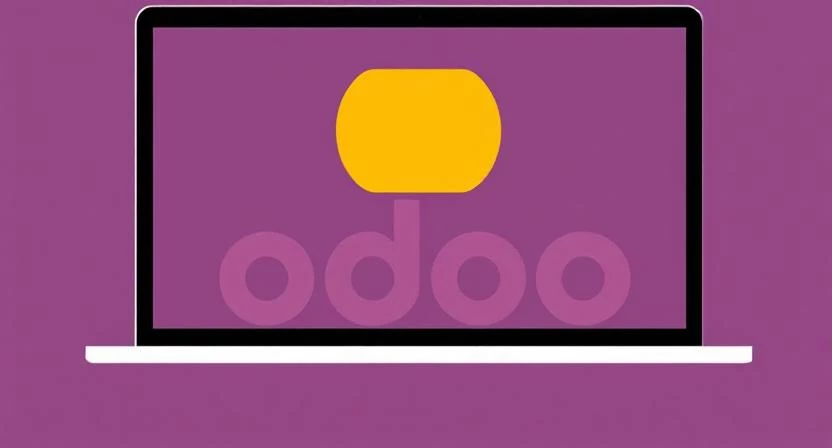Businesses today rely on smart accounting solutions. Two of the most talked-about platforms are Tally and Zoho Books. Both serve similar goals but differ in approach. Let’s dive deep into this comparison.
Introduction to Tally
Tally is a well-known name in Indian accounting. It has been around for decades. Many small and medium businesses rely on it. Tally Prime is the latest version. It offers features like GST compliance, invoicing, and inventory management.
Tally works offline by default. However, it also supports remote access with some setup. It’s a robust solution for users familiar with traditional accounting.
Introduction to Zoho Books
Zoho Books is a cloud-based accounting software. It’s part of the Zoho suite. Launched much later than Tally, Zoho Books quickly gained popularity. It’s easy to use, highly scalable, and mobile-friendly.
Being cloud-native, it requires no installation. Users can access it anytime, from anywhere. It fits modern business needs with automation and seamless integration.
Interface and Ease of Use
Tally has a classic interface. It’s menu-driven and text-heavy. Users familiar with keyboard shortcuts can navigate quickly. But new users might find it difficult at first.
Zoho Books offers a clean and modern UI. It’s intuitive and beginner-friendly. Navigation is easy even for users with no accounting background.
In terms of user experience, Zoho Books has a slight edge. However, Tally fans appreciate its speed and keyboard shortcuts.
Deployment and Accessibility
Tally is primarily desktop-based. You can use it offline without an internet connection. This is ideal for areas with limited connectivity. However, syncing data between devices is not straightforward.
Zoho Books operates entirely online. It supports web browsers and mobile apps. Real-time data access is a major plus. Collaboration becomes easier with cloud deployment.
Tally now offers a cloud version via third-party hosting. But Zoho Books remains a native cloud solution.
Features and Functionalities
Invoicing and Billing
Tally allows you to create GST-compliant invoices. You can customize formats and maintain billing records.
Zoho Books also supports GST-ready invoices. Additionally, it offers invoice automation. You can set recurring bills, auto-reminders, and payment gateways.
Inventory Management
Tally provides solid inventory control. You can manage stock levels, track movement, and generate reports.
Zoho Books also includes inventory features. It syncs sales and purchase modules. However, for advanced features, you may need to integrate Zoho Inventory.
Banking Integration
Tally has basic banking features. You can reconcile bank statements and manage cheques.
Zoho Books supports automatic bank feeds. It connects with many banks worldwide. You can categorize transactions and automate reconciliation.
Tax Management
Tally is known for its GST features. From returns to reports, it’s GST-ready. It also supports multi-tax systems.
Zoho Books handles tax well too. It auto-populates GST forms, calculates taxes, and supports multiple jurisdictions.
Reporting
Tally offers deep financial reporting. Users can generate balance sheets, P&L statements, and stock summaries.
Zoho Books also includes a wide range of reports. These are visually appealing and customizable. You can export them in various formats too.
Payroll
Tally includes payroll as an add-on. You can calculate salaries, PF, and ESI.
Zoho Books does not have built-in payroll. However, it integrates with Zoho People and other payroll apps.
Automation and Smart Features
Tally is more manual. You must enter data and perform calculations yourself. While it has some automation, it’s not AI-driven.
Zoho Books excels in automation. It supports recurring invoices, auto-scheduling, and workflow rules. You can also connect with Zoho Flow for deeper automation.
Additionally, Zoho Books uses machine learning for smarter categorization. This saves time and reduces errors.
Integration Capabilities
Tally works well on its own. It does not have a wide app ecosystem. However, Tally can be integrated with third-party tools using APIs or connectors.
Zoho Books integrates seamlessly with other Zoho apps. It also connects with CRM, HR, eCommerce, and payment gateways. You can build a complete business suite.
For growing businesses, Zoho’s ecosystem is a huge advantage.
Pricing Comparison
Tally requires a one-time license or an annual subscription. The cost varies by version and user count. It’s cost-effective for long-term use.
Zoho Books follows a subscription model. It offers multiple pricing tiers. Plans start from basic to advanced, depending on features. You also get a free trial.
Here’s a quick look at current pricing (as of 2025):
| Software | Pricing Model | Starting Price (INR/month) |
|---|---|---|
| Tally | One-time/Annual | ₹18,000 (single user/year) |
| Zoho Books | Monthly/Annual | ₹899/month (Basic Plan) |
Zoho Books may appear costly monthly. But it includes hosting, support, and upgrades. Tally’s initial cost is higher but pays off over time.
Scalability
Tally is scalable within limits. You can add users and features, but it’s not ideal for multi-location access without third-party support.
Zoho Books scales smoothly. You can upgrade plans as your business grows. Adding users, modules, or regions is effortless.
Support and Updates
Tally offers support through partners and resellers. You can contact them for training, setup, and troubleshooting. Updates are periodic but need manual installation.
Zoho Books offers 24/5 support via chat, email, and calls. Updates are automatic and frequent. There’s a vast knowledge base and community too.
Data Security
Tally stores data locally. It depends on your own backup strategy. Security is your responsibility unless you use cloud hosting.
Zoho Books stores data on secure servers. It uses SSL encryption, 2FA, and regular backups. Security is managed professionally.
Mobile Access
Tally has a basic mobile app with limited features. You can view reports or access data via third-party hosting.
Zoho Books has a full-featured mobile app. You can create invoices, record expenses, and track time on the go.
Mobile-first businesses prefer Zoho for flexibility.
Pros and Cons
Tally Pros:
- Offline capability
- Powerful reporting
- Strong local support
- One-time cost available
Tally Cons:
- Dated interface
- Limited automation
- Complex integrations
Zoho Books Pros:
- Cloud-based access
- Excellent automation
- Clean interface
- Seamless integrations
Zoho Books Cons:
- Monthly cost adds up
- No built-in payroll
- Needs internet
Which One Should You Choose?
If you’re a traditional business with offline needs, Tally is reliable. It’s perfect for companies with in-house accounting teams. If you prefer control over your data, Tally makes sense.
On the other hand, if you’re looking for automation, mobility, and easy collaboration, choose Zoho Books. It fits startups, freelancers, and modern SMBs. The cloud-based model saves time and effort.
Final Thoughts
Both Tally and Zoho Books are strong contenders. Your choice depends on your business needs. Evaluate features, budget, and team expertise. Also, consider future growth.
In short, go with Tally if you want a stable offline solution. Choose Zoho Books for modern, scalable cloud accounting.



